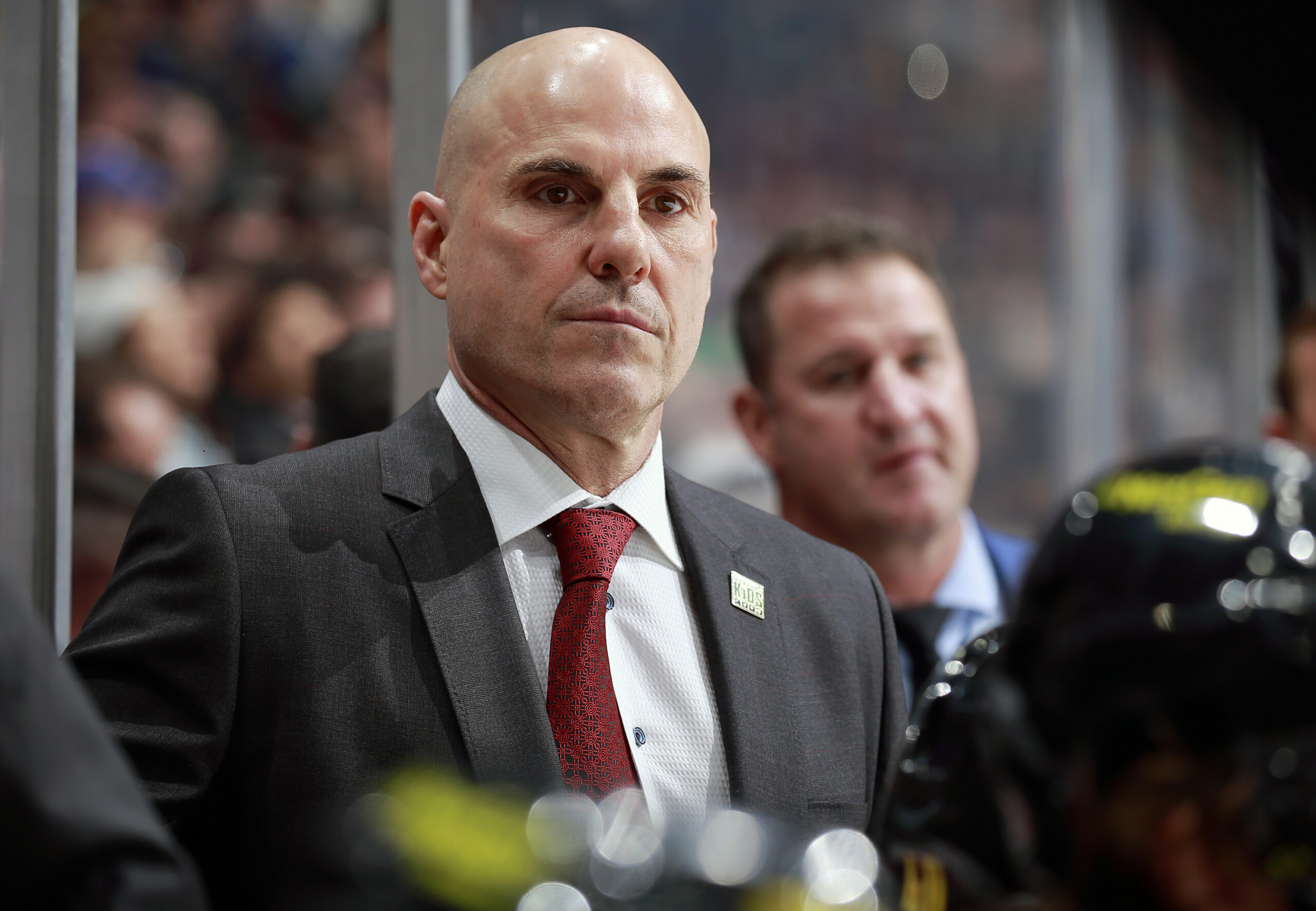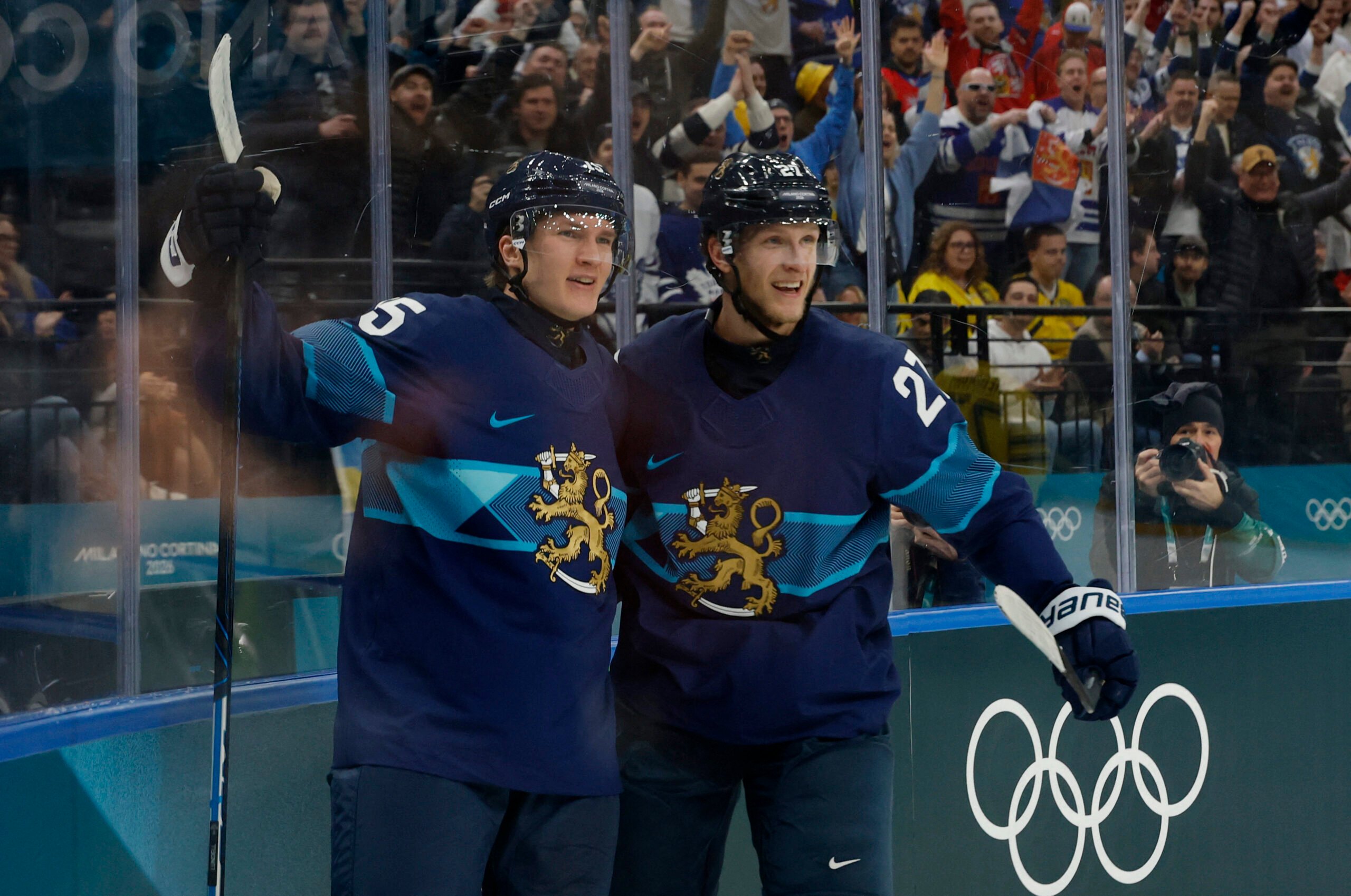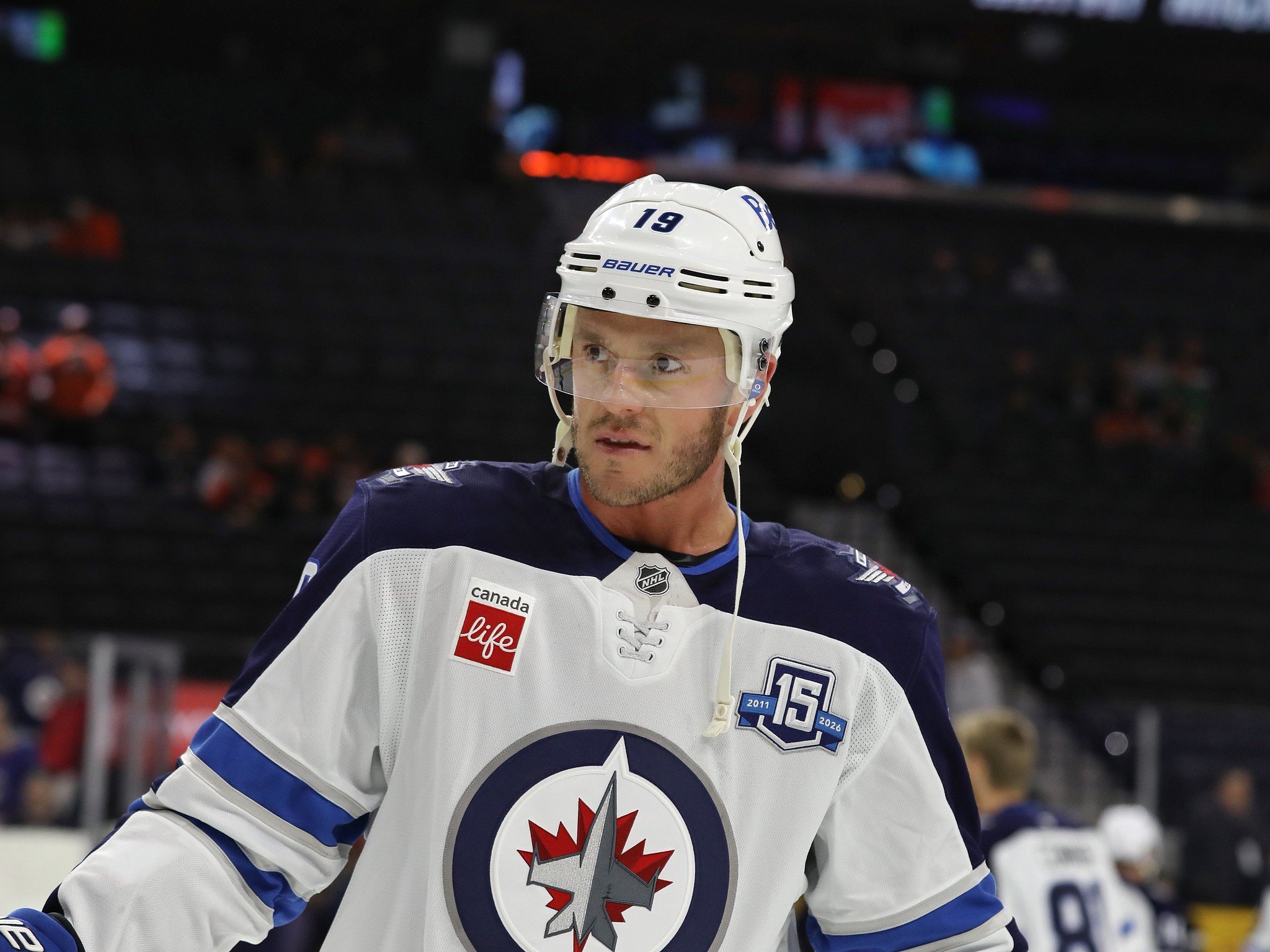The Philadelphia Flyers paid a premium to make Rick Tocchet their head coach. At a cost of $26.25 million over five years, the team didn’t spare any expense to bring in the 2023–24 Jack Adams Award winner.
Related: Flyers Name Rick Tocchet 25th Head Coach in Franchise History
Given the price they paid, the Flyers like Tocchet. They’re thrilled about Tocchet. That much is obvious.
So, why haven’t they been able to convey that beyond clichés and non-head coach accomplishments? Repeated ad nauseam has been the idea that he is well-liked, wore the team’s sweater for 11 seasons, was a two-time champion as an assistant coach with the Pittsburgh Penguins, and won the aforementioned Jack Adams Award.
These are all notable things about Tocchet, to be clear—it’s exciting that he may be able to attract free agents. At the same time, however, there are concerns that may entirely offset those positives, depending on your perspective.
Playoff success has eluded Tocchet as a bench boss, only winning one series and making the dance just twice across nine campaigns. There haven’t been many forward development stories, but rather, the opposite. Clayton Keller soared in production following the coach’s dismissal from the Arizona Coyotes, and the Vancouver Canucks’ Elias Pettersson was on pace for over 100 points before Tocchet was hired mid-season in 2022–23, then became a shell of himself by 2024–25 (45 points in 64 games). To top it all off, you could make the case he “lost the room” this past season.
With articles, interviews, other media content, and even an introductory press conference of their $26 million man, you’d hope for a bit more insight than “Tocchet is a good guy.” Unfortunately, that has not been the case. Fans have been left in the dark, forced to trust the process.
That’s not right. Whether the hire is brilliant or not, fans deserve deeper insight.
Why Is Rick Tocchet Better Than Brad Shaw?
As a result of Tocchet’s hiring, the Flyers lost their interim head coach, Brad Shaw. Hired in 2022–23, he did wonders for the team’s defensemen as an associate. Several veterans reached new highs, such as Rasmus Ristolainen, Nick Seeler, and Sean Walker—the last two went from depth guys to getting eight-figure contracts.
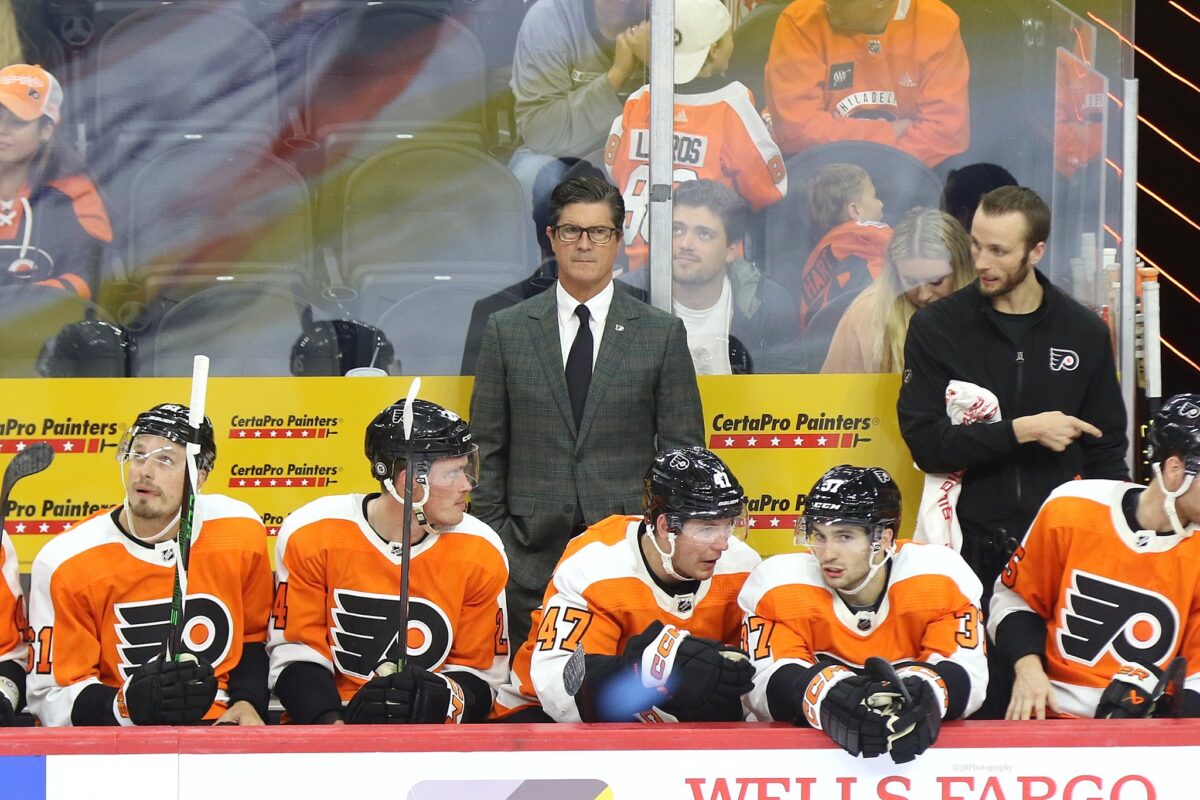
When John Tortorella was let go on March 27, 2025, Shaw wasn’t taking over in the best position. The team hadn’t won in regulation or overtime in their last 14 games, had just sold at the trade deadline, were without Ristolainen on the back end due to injury, and were ultimately poised for an uninspired finish.
But that’s not what happened. Under Shaw, the Flyers accumulated a 5–3–1 record, and many key players soared. Rookie Matvei Michkov scored 12 points in those nine contests, making him one of the most productive players in the NHL over that span. Tyson Foerster, another key young player, scored nine goals. For the first time in months (perhaps, all season), the Orange and Black looked consistently competitive—that matters.
Unfortunately, with Tocchet’s hiring, Shaw chose to explore a bigger opportunity elsewhere, rather than return as an associate. He is a candidate to be a head coach somewhere else.
Considering the sacrifice of hiring Tocchet was losing someone like Shaw, fans probably deserve to hear why they made the decision. But, again, the only insight is that Tocchet is well-liked and has connections (which could entice free agents). Shaw, mind you, was loved in the locker room by all accounts.
The Bar of Being Better Than John Tortorella Is Low
Now, in Tocchet’s defense, the bar of being better than Tortorella is low. It was a small sample of games, but even Shaw was able to prove that with the cards stacked against him. The Orange and Black are poised for growth.
Related: Flyers Mock Draft 1.0: How to Spend Seven Top-50 Picks
There is one area where we know Tocchet can help the Flyers substantially—between the pipes. Putting up the worst single-season save percentage in Evolving-Hockey’s tracking history (since 2007–08), they hit rock bottom in their last campaign. Surely, it’s only up from here (ignore the fact that I said this last fall).
Over the past two seasons at 5-on-5 action, the Flyers have been among the best teams in key defensive rate metrics. In expected goals against, they’re fourth. In shots allowed, they’re sixth. But then you look at actual goals allowed, and they’re a distant 30th. Per Natural Stat Trick, they stopped just 78.21% of high-danger shots during five-a-side hockey—the worst mark in the NHL, and 2.15 standard deviations below the league average.
What’s more likely: the goaltending alone was the culprit for the worst defensive performance the NHL has seen in decades, or Tortorella had something to do with it? Though public models would have you think it’s the former, more realistically, it’s the latter.
Shaw’s tenure was a small sample, again, but the team had one of the best high-danger save percentages when he took over, stopping 84.85% of those shots. This is just a theory, but it’s possible that Tortorella’s system made it harder for goalies to make those tougher saves. With that said, Tocchet should be able to help in this area—he’s coached talented goalies like Darcy Kuemper and Thatcher Demko in recent memory, but he has had decent results.
Shifting gears, players have expressed excitement about having more “freedom” next season with Tortorella out, headlined by Michkov. In an interview with RG.org, he said that he’s looking forward to more ice time and fewer restrictions. Going back to the points made about Shaw, this was an area where the 61-year-old excelled. He let the offense run through the 20-year-old rookie, unlike Tortorella, and wasn’t overbearing. Thus, the player and team flourished. Again, the bar for Tocchet to surpass Tortorella is low—don’t put your superstar on the third line, bench him for minor mistakes, make him overthink every little detail, or prevent him from playing with a star like Travis Konecny. Avoiding these things will lead to wins.
Still, when you look at public models or just basic stats, there’s nothing that really jumps out about Tocchet. He’s better than Tortorella, yes, but will the team’s long-term bench boss exponentially improve the team’s play? The hire isn’t about going from the basement to average—it’s about being a contender someday. So far, there’s been zero elaboration on why Tocchet is the man to do that from the organization. His respect around the league can theoretically help attract star players, but not much else has been said.
Fans deserve more elaboration. Why is Tocchet the right guy?
Flyers Fans Left with More Questions Than Answers
The closest Flyers fans have gotten to an explanation of why they like Tocchet as a coach was from Daniel Brière. Answering a question from PHLY‘s Charlie O’Connor, the third-year general manager said that he liked his new coach’s stint with the Canucks, but was more enthused by his time in Arizona. He said that those Coyotes teams were competitive despite being projected to finish low in the standings.
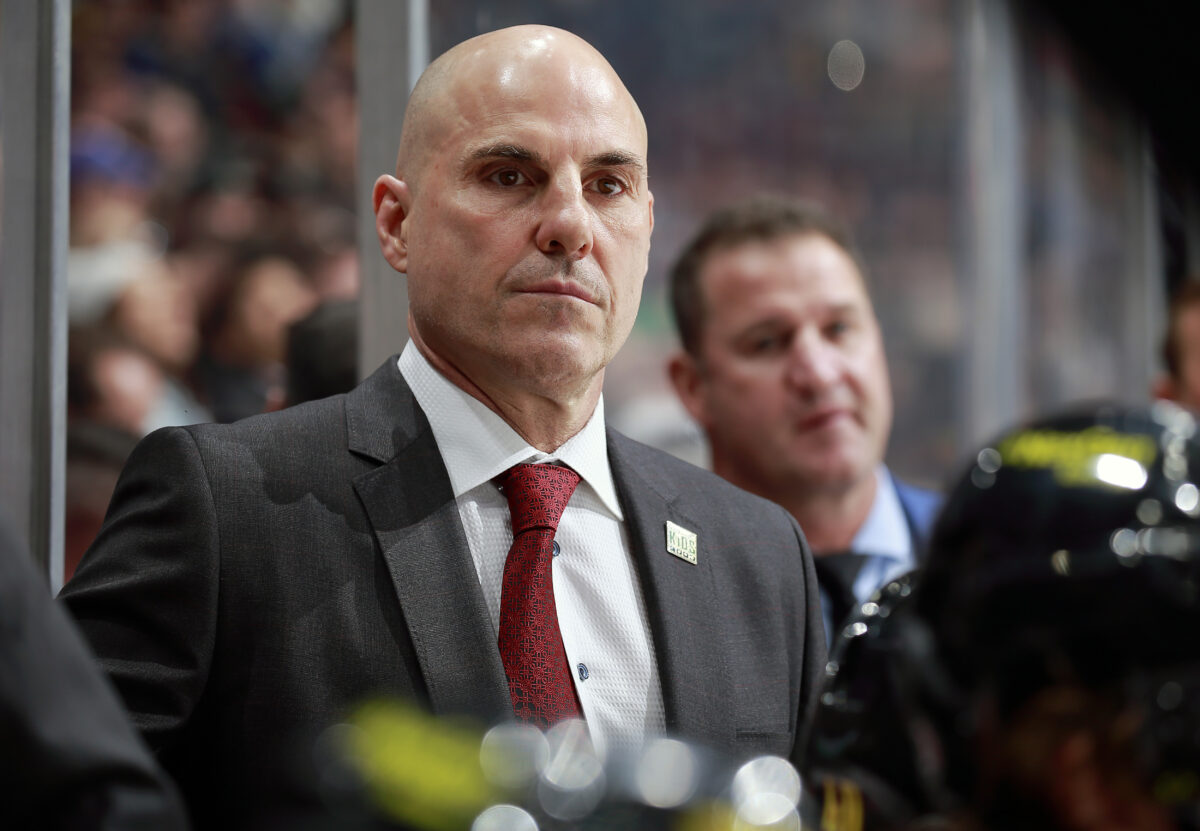
A slight problem there is that, in four seasons, Tocchet won just one first-round playoff game. He was outscored 22–8 in his sole appearance in the group of 16. On the surface, that’s not exactly riveting stuff.
But a point to hone in on is the fact that Tocchet elevated those teams, according to Brière. There were low expectations in the desert, with many last-place predictions, yet Tocchet was able to sneak out some wins and get his squad playing competitively.
Let’s use Hockey-Reference to check out the validity of that claim, using their preseason over/under point projections. If we look at all four of Tocchet’s seasons, he actually finished with six points below projected.
In 2017–18, the odds had the Coyotes at 75.5 points, but they only had 70 by the end of the campaign (minus-5.5). In 2018–19, they were projected to have 81.5, but Tocchet elevated his squad to 86 (plus-4.5). The 2019–20 campaign is a bit trickier, since COVID-19 brought an abrupt end to the season, but he was on pace for 87 points over 82 games. The oddsmakers expected a bit more, with an 89.5-point projection (minus-2.5). Finally, in 2020–21, the Coyotes had 54 points when their preseason projection had them at 56.5 (minus-2.5).
In total, you have six points below preseason projections. This leaves more questions than answers, as Tocchet supposedly elevated those Arizona teams. If you want to get technical, it was actually the opposite.
The Flyers owe their fans a deeper analysis of why they like Tocchet. If they like the coach enough to pay him $26.25 million, surely, they must love him. While NHL front offices tend to be secretive, they made a huge commitment—loyal fans, who have not seen a championship victory in 50 years, deserve to hear why.


